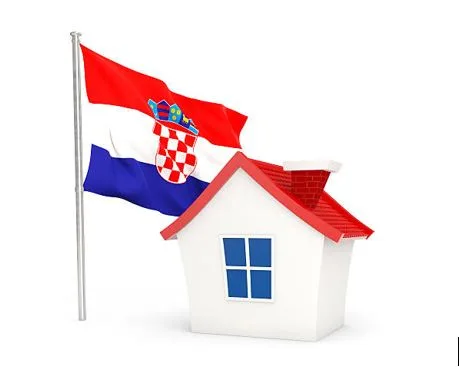Croatia Joins the Fractional Real Estate Tokenization Wave: What’s Coming Next
Owning a slice of a luxury villa in Split or a modern apartment in Zagreb has traditionally been limited to high-net-worth individuals or corporate investors. But that’s changing. Tokenization is introducing a new era in Croatian real estate — one where digital tokens can represent partial ownership in physical properties. This emerging investment model is not just a trend but a structural evolution in how real estate is bought, sold, and managed.
As interest in Croatia’s property market continues to grow, particularly from foreign investors and the Croatian diaspora, the concept of fractional ownership via blockchain technology is starting to gain real traction. Platforms are emerging to meet this demand, many of which are exploring models and innovations detailed on the Tokenizer.Estate Blog. Investors now have the opportunity to access premium real estate in high-demand locations without having to purchase an entire property.
This article explores why Croatia is ripe for real estate tokenization, how the process works, who stands to benefit, and what the future may hold for this digital transformation in property ownership.
The Appeal of Croatia: Why Tokenization Fits Here
Croatia’s real estate market has grown significantly in recent years, fueled by increasing demand from international buyers, strong tourism, and economic stability. Several key factors make it a compelling environment for tokenized, fractional real estate investment.
Thriving Tourism Industry
Croatia consistently ranks among Europe’s top tourist destinations. Its coastal towns, islands, and cultural heritage draw millions of visitors each year. This creates a strong demand for short-term rentals and holiday properties — ideal for fractional investors looking for rental yields.
Attractive to Foreign Investors
Many non-residents are eager to invest in Croatian property, especially those from the European Union, the UK, and North America. The appeal lies in the relatively affordable property prices, EU membership benefits, and lifestyle advantages. Tokenization lowers the barrier for these investors by allowing smaller capital outlays and simplified cross-border transactions.
Eurozone Membership and Economic Growth
Since adopting the euro and joining the Schengen Area, Croatia has become even more attractive to EU-based investors. Currency stability and freedom of movement have made real estate transactions easier and less risky for foreigners. This creates a favorable climate for blockchain-based investment models that emphasize liquidity and cross-border flexibility.
Real Estate Market Structure
Croatia’s property market is relatively fragmented and often family-owned, which historically created high entry barriers due to lack of scale or institutional structure. Tokenization provides a way to modernize and standardize access to these assets, making them available to a wider pool of global investors.
Breaking Down the Barriers: How Tokenization Solves Historical Challenges
Capital Requirements
Traditionally, buying property in Croatia — especially in sought-after areas like Dubrovnik, Hvar, or Rovinj — requires a significant upfront investment. As outlined in the article Tokenization in Croatia: Fractional Real Estate Investments Arrive, fractional ownership through tokenization allows investors to participate in the market with much lower entry points, sometimes even just a few hundred euros.
Complex Paperwork and Legal Restrictions
Foreigners often face complex procedures when purchasing property in Croatia, including paperwork, approvals, and legal compliance. Tokenization simplifies this by wrapping property assets into a digital, legally compliant structure that can be traded securely and efficiently.
Geographic Limitations
Many would-be investors, especially members of the Croatian diaspora or those living overseas, find it difficult to manage or monitor a property from afar. Tokenization, supported by transparent platforms and smart contracts, allows remote investment and management — reducing the need for physical presence or intermediaries.
How Fractional Tokenization Works in Croatia
The Core Model
At the heart of real estate tokenization is the idea that a property is represented by digital tokens on a blockchain. Each token corresponds to a specific share of the property’s ownership. Investors buy tokens and, in return, hold a fractional interest in the underlying asset.
Legal and Operational Structure
Properties are typically held by a special purpose vehicle (SPV), trust, or similar legal entity. This entity owns the property, and tokens represent ownership in that entity. The SPV handles property operations — such as rentals, maintenance, and compliance — while token holders receive their share of revenue or profit.
Smart Contracts and Compliance
Blockchain-based smart contracts are used to automate processes like rental income distribution, ownership verification, and secondary trading. Investor onboarding involves KYC (Know Your Customer) and AML (Anti-Money Laundering) checks, ensuring regulatory compliance while enabling seamless access to global investors.
Income and Resale Options
Token holders may earn returns through rental income, which is periodically distributed. Some platforms also enable token resale on secondary markets, allowing investors to exit their positions more flexibly compared to traditional property sales.
Benefits of Tokenized Real Estate for Investors and Owners
Lower Entry Thresholds
One of the most attractive features is the ability to invest small amounts. Instead of needing hundreds of thousands of euros to buy a full apartment, an investor can purchase tokens worth just a fraction of the total value.
Increased Liquidity
Traditional real estate is notoriously illiquid. With tokenization, investors can trade their ownership tokens on regulated platforms, creating a more dynamic and accessible secondary market.
Transparency and Security
Blockchain technology ensures that all transactions are transparent, auditable, and secure. Ownership records are immutable, reducing the risks of fraud or title disputes.
Revenue Potential
Investors can earn income from both rental yields and capital appreciation. High-tourism areas and coastal properties in Croatia offer attractive rental opportunities, especially during the summer months.
Portfolio Diversification
Tokenization allows investors to spread their capital across different types of properties — residential, commercial, urban, and coastal — without the need to manage each property individually.
Challenges and Risks to Consider
Regulatory Uncertainty
While tokenization is gaining momentum, Croatian law has not yet fully addressed how fractional property tokens should be regulated. Are they considered securities? What taxes apply? These questions remain partly unresolved, which introduces legal risk.
Technology Vulnerabilities
Smart contracts and blockchain systems, though secure in principle, are not immune to bugs, hacking, or technical failures. A poorly designed contract can result in misallocated revenue or even permanent loss of ownership records.
Liquidity Limitations
Even with tokenization, a reliable and active secondary market is necessary for true liquidity. If such a market doesn’t develop or fails to attract buyers, investors may be stuck with their tokens for extended periods.
Operational Complexity
Fractional ownership involves more than just splitting property rights. The underlying property still needs maintenance, tenant management, compliance, and ongoing administration. If the platform managing the asset is inefficient, investors may face disruptions in revenue or value.
Taxation and Cross-Border Complexity
Token holders, especially international ones, must be aware of local and international tax obligations. This includes income from rent, capital gains, and potentially value-added tax. Navigating these laws requires clarity and reliable reporting from the tokenization platform.
How Croatia Compares to Other Markets
Compared to other European countries, Croatia is still in the early stages of embracing tokenized real estate. However, it holds significant advantages over many of its neighbors.
While countries like Germany or the Netherlands may have more structured legal frameworks, Croatia offers a higher growth potential and greater opportunity for early adopters. The relatively low cost of property, paired with the high tourism volume, makes it particularly attractive for income-generating investments.
Eastern European countries are gradually exploring tokenization, but Croatia’s EU membership, rising property values, and international investor interest put it in a strong position to become a regional leader in this space.
Lessons from more mature markets suggest that regulation, platform trust, and market education are key to unlocking scale. Croatia has the opportunity to design a system that balances investor protection with innovation, drawing from these global experiences.
A Look at the Future: 2026 to 2030
The next five years could be transformative for blockchain property investment in Croatia. Several trends point toward accelerated adoption and broader market acceptance.
Expected Developments
- Legal Clarification: Regulatory bodies are likely to introduce frameworks that define how property tokens are treated, enabling more standardized compliance.
- Platform Expansion: More tokenization platforms will emerge, offering a broader range of assets and better user experiences for both domestic and foreign investors.
- Foreign Capital Inflows: The Croatian diaspora and international investors could inject substantial capital into tokenized properties, driven by the ease of cross-border participation.
- Secondary Market Growth: With improved legal backing and standardized token formats, trading platforms will become more robust and liquid.
- Hybrid Ownership Models: We may see the rise of hybrid platforms that blend traditional real estate funds with token-based distribution and governance.
Market Forecast
By 2030, tokenized real estate in Croatia could represent a significant portion of all foreign-funded property deals. If even a small percentage of high-value coastal and urban properties are fractionalized, the market could attract hundreds of millions of euros in capital.
Urban regeneration projects, tourism infrastructure, and mixed-use developments are likely to be among the first sectors transformed by tokenization, especially if supported by public-private initiatives and government incentives.
Final Thoughts: A Turning Point for Property Investment in Croatia
Fractional real estate through tokenization is not just a buzzword — it represents a fundamental shift in how people think about property ownership and investment. Croatia, with its scenic beauty, strong tourism, and evolving legal landscape, is well-positioned to become a hotbed for this innovation.
As platforms gain trust and regulation becomes clearer, real estate tokenization in Croatia could unlock massive opportunities for both local developers and global investors. It makes premium real estate more accessible, diversifies risk, and brings long-overdue modernization to a traditionally illiquid and complex asset class.





